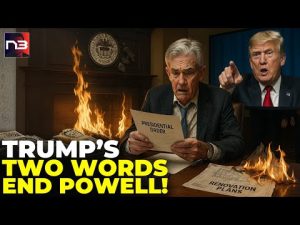In the latest swirl of political theatrics, the focus falls on the curious case of the auto-pen and its unlikely involvement in pardoning Dr. Anthony Fauci. It seems the COVID-19 czar, Jeff Zients, with his nearly invisible public profile, has stirred the pot. Apparently, Zients’ minimal fan base could stand a significant boost, considering more people are likely familiar with the Easter Bunny than his contributions or authority. Yet, Zients’ name is linked to this intriguing episode involving what some might call an automated signature machine.
The core of this hullabaloo revolves around the constitutionality and authenticity of using an auto-pen to sign important documents. The Constitution implies that the signature of the President is essential for a bill to transform into law. Purists argue it says “the” signature, not “a” signature, thus sparking debates about what role, if any, machines should play in such formal processes. It’s an argument that has become almost as perplexing as trying to explain why people put pineapple on pizza.
Interestingly, the auto-pen is not a modern invention sprung from the digital age. Thomas Jefferson himself dabbled with the concept, suggesting that even geniuses of their time could use a shortcut or two. However, today’s debate isn’t about the ingenuity of past inventors but about whether the practice aligns with fundamental government principles. The echoes of this discussion refuse to die down, largely because certain influential figures, like Donald Trump, drag it to the forefront, ensuring it’s a conversation that won’t vanish anytime soon.
Another layer to this fantastical situation is the claim of widespread amnesia sweeping through anyone who might be guilty by association. Imagine key figures supposedly forgetting their involvement with a major pandemic response. This selective forgetfulness seems almost as believable as waking up one day and forgetting your own name. It’s especially highlighted when certain officials testify under oath about waking a president and conveniently claiming no recollection. Surely, waking a president isn’t like forgetting where you parked the car at the mall.
All in all, this ongoing drama with the auto-pen, presidential signatures, and sudden memory lapses offers a rich tapestry of political satire. Whether it’s a small chuckle or a full-blown facepalm, the story underscores a larger narrative about accountability and the quirky nature of those steering the ship of state. It may be the stuff of late-night monologues, but it also keeps alive a crucial dialogue about how governance is executed in a nation where sometimes the lines between efficiency and authenticity blur mysteriously.







